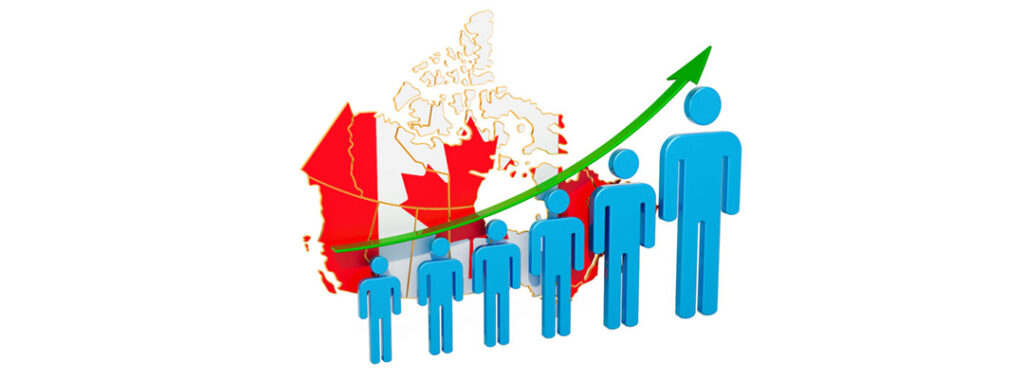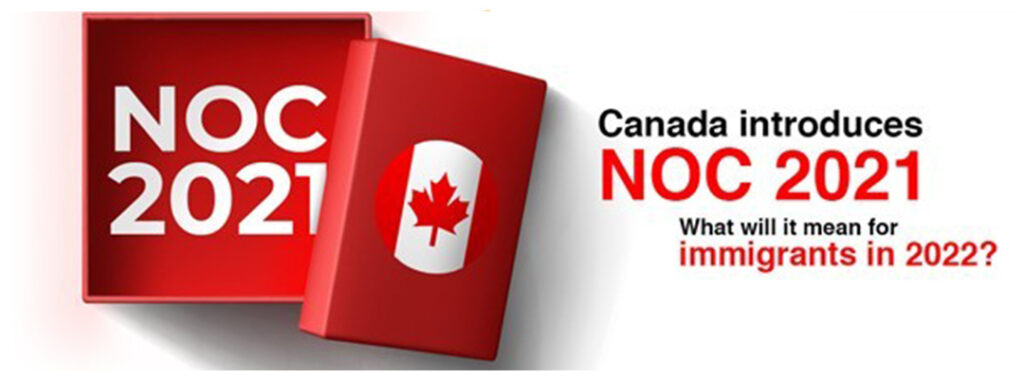The Canadian government recently released the Supplementary Information note that details its targets for bringing in immigrants for 2021, 2022, and 2023. And on the surface, these targets seem fascinating:
- 401,000 new permanent residents in 2021.
- 411,000 new permanent residents in 2022.
- 421,000 new permanent residents in 2023.
With this in mind, it can be expected that even higher levels of immigrants can be welcomed to Canada due to various factors such as growing labour shortages in Canada, application backlogs, and the federal government’s commitment to resettle 40,000 Afghan refugees. The Immigration Minister, Sean Fraser stated that the government is open to higher levels of immigration if Canadian employers and communities are receptive to the idea.
1. Stagnated Population Growth
Till 2017, the Canadian economy was experiencing population growth in the range above 1.5%. However, since 2020, that number has fallen to 0.5%. The sudden downfall also coincides with the impact of COVID, travel restrictions, and the need to change policies and safeguard the Canadian populace.

The deficit will certainly make the government push the policies that can make it easier for applicants to immigrate to Canada. While this is painting with a broad stroke, at least for the next few years, qualified applicants should keep an eye for windows of opportunities when the policies are relaxed temporarily. And given the way this population deficit has remained, such opportunities will show up.
2. Lower Comprehensive Ranking Scores
The lowest Comprehensive Ranking Scores have been an indicator of whether Canada is on-target with its population growth goals or not. For instance, the last time the lowest CRS peaked at 498 was in September 2016. And a year after that, Canada had hit one of its highest years of population growth.
However, the number has been falling for quite a few years. In addition, Canada conducted its Canada Experience Class draw in September 2021. Based on this assessment, one can reasonably expect the lowest Comprehensive Ranking Score for the coming period to be lower than the recent historical records. In the last quarter of 2021, IRCC has admitted more newcomers per month in relevance to Canadian history. As the backlog clears, it can be expectedexect to see an all-program draw in 2022.This would be essential for the government in Canada to stay on track with its immigration plan.
3. Changes in the National Occupation Classification (NOC) System into the TEER System

For years, most federal and provincial agencies and several industry observers have been using the NOC system established in 2016. The system followed a four-tiered hierarchy where experienced professionals with Skill Level B eligibility were considered admissible for the Express Entry program.
Recent IRCC announcements show that this system is now being altered to a six-level system that would include special considerations for – Training, Education, Experience, and Responsibilities.
On paper, a broader range of levels would indicate that more individuals might get invited to apply for the Express Entry program. However, there is a higher chance that the exact inverse of this projection might occur.
The new TEER System goes into effect in the latter half of 2022. But, since more levels have been created within the system, the federal and provincial agencies will scrutinize each application with greater details. This might mean that several earlier eligible applicants for the Express Entry applications might not be eligible anymore.
On top of this change, there are speculations that IRCC along with other Canadian agencies might change the mechanism for selecting invited applicants from the total pool of applicants more frequently than it has been doing all these years. This will give Canada the edge to invite the individuals who can bring competencies lacking in the Canadian job market.
Applicants should pay attention to this change since it may affect the immigration and foreign worker eligibility. IRCC and Service Canada will provide guidance to stakeholders in advance of the changes taking effect.
4. COVID-19 Restrictions and Vaccine Requirements
For the last two years, the Canadian federal government has taken a clear stance on vaccination – it does not allow any applicants without legitimately verifiable proof of vaccination. Now that position has permeated across the provinces as well. As a result, Quebec plans to levy taxes on citizens who choose not to get vaccinated.
Hence, it would be reasonable to conclude that the vaccine mandates are here to stay. The Canadian government has been pushing the booster shots; there is a chance that the new immigrants landing in Canada might be included in the eligibility for these booster shots.
Regarding the travel restrictions, the Canadian government has been reactive, and it seems that it will stay in that position. Provinces are taking things into their own hands and applying bans across the board in the form of partial lockdowns.
As cases rise in other countries, Canada may impose travel bans that look quite similar to the ones imposed in 2020 and 2021.
5. Will more Federal Skilled Workers get invitations for Express Entry?
Canada is running on an applicant backlog of nearly 1.8 million applications. This number shows how both 2020 and 2021 were largely disappointing years for many federal skilled workers who might have received the Express Entry invite in any other year.
Moreover, there has not been a FSW draw from the Express Entry pool since December 2020. This means that several Federal Skilled Workers who should have gotten through with the conventional process have been waiting for over a year.
The backlog is largely induced by the pandemic, which meant that most federal agency staff had to stay away from the offices for a large part of 2021. In the meantime, the government has worked on smaller Provincial Nomination Programs compared to earlier years to keep the inflow of accepted applications rising.
The 1.8 million number might create urgency in the system and result in a more efficient draw. All the developments made to date show that the Canadian government is eager to get more immigrants – which can be asserted by the number of immigrants the country has allowed over the last few months. Canada has also been working on settling over 40,000 Afghan immigrants. However, this has also led to a slower process in other streams since the government’s human resources are allocated.
Are You Interested in Immigrating to Canada in 2022?
With lower population growth than the most recent years on record, Canada is set to allow, inhabit, and invite some of the largest numbers of immigrants in recent history.
If you are interested in immigrating to Canada in this year, fill out the FREE Immigration Assessment form and get a response within 24 hours to see if you’re eligible.
At Arora Canadian Immigration Consultancy Inc., all cases are handled by competent and experienced immigration professionals who adhere to the highest standards of client service.
Have a question related to your immigration needs?
Give us a call now at 778-564-0192 or visit our location at Unit 407, 8318 120 Street, Surrey, BC, V3W 3N4. We are also located in Calgary, Alberta and Mississauga, Ontario. Click on the respective locations to get contact information.





0 Comments